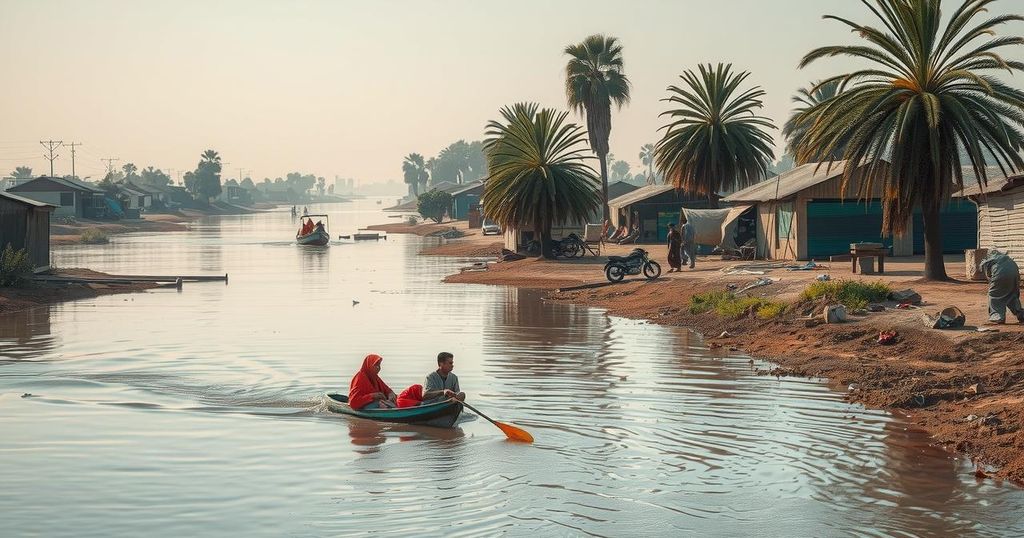Nile Flooding Forces Thousands of South Sudanese Families to Seek Refuge
Flooding from the River Nile in South Sudan has displaced over 379,000 people in Jonglei state, submerging homes and farms. The situation is worsened by economic instability and poor infrastructure, as displaced families now rely heavily on humanitarian aid. With inadequate healthcare and limited government presence, the community of Pajiek exemplifies the dire consequences of ongoing natural disasters and unresolved socio-political issues.
The recent flooding of the River Nile has drastically affected the lives of thousands in South Sudan, forcing many to seek refuge along a canal in Jonglei state. Villagers have witnessed their farms submerge and livestock perish, leaving them devastated. The floods, exacerbated by upstream dam openings in Uganda, have displaced over 379,000 individuals this year alone. The stagnant socio-political landscape exacerbates their plight, as many communities like Pajiek struggle with inadequate resources and reliance on external aid. Limited access to healthcare, food shortages, and the absence of basic infrastructure compound the challenges faced by these displaced families. With no immediate solutions available, the situation remains dire as natural disasters and economic instability threaten their survival.
The flooding of the River Nile has become an annual calamity for South Sudan, with villagers experiencing unprecedented levels of displacement and destruction. The World Bank classifies the country as the most vulnerable to climate change, highlighting the challenges it faces in adapting to such disasters. Historical patterns of seasonal flooding have intensified since the 1960s, submerging agricultural lands and displacing many pastoral communities, particularly the Dinka, Nuer, and Murle peoples. These social and economic challenges are further compounded by the country’s ongoing struggles with governance and conflict, leading to a dire humanitarian situation.
The floods along the River Nile have left South Sudanese families in a state of desperation, with many losing their homes and livelihoods. The interplay of climate change, inadequate infrastructure, and governmental neglect has exacerbated their plight. As support from international agencies like the World Food Program is critical for survival, the bleak outlook suggests that without enhanced aid and sustainable solutions, the situation may only deteriorate further.
Original Source: www.independent.co.uk




Post Comment